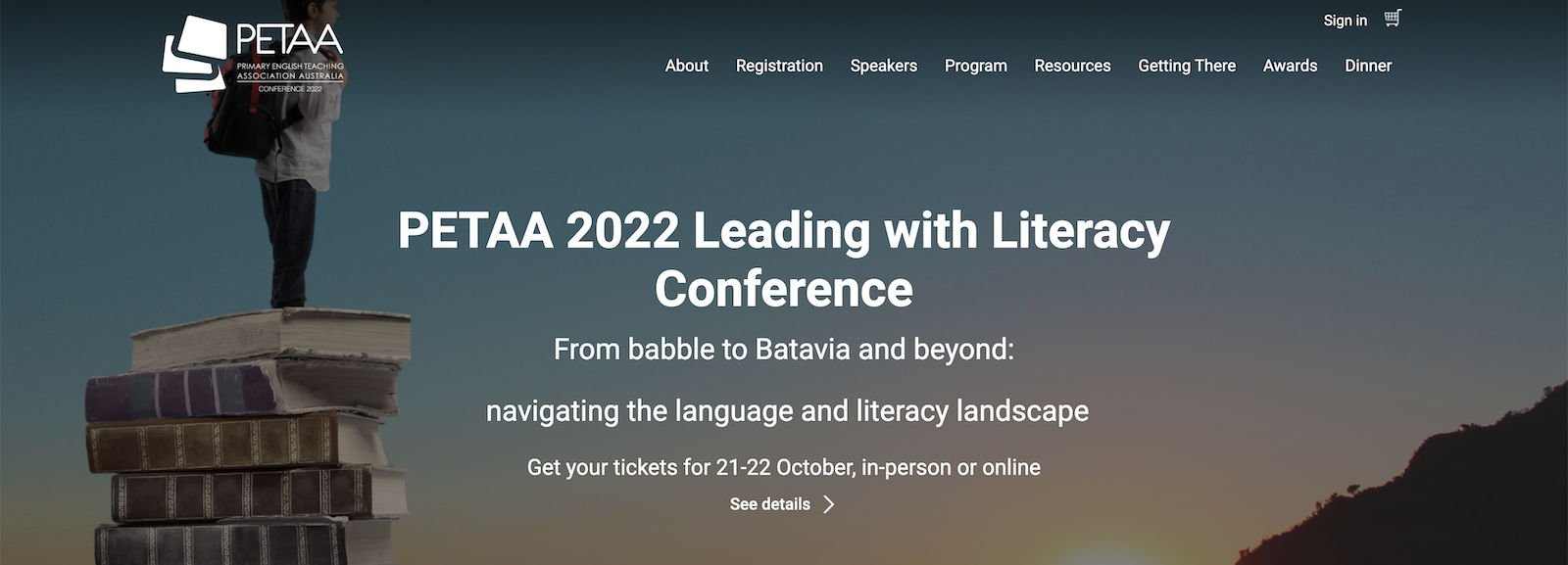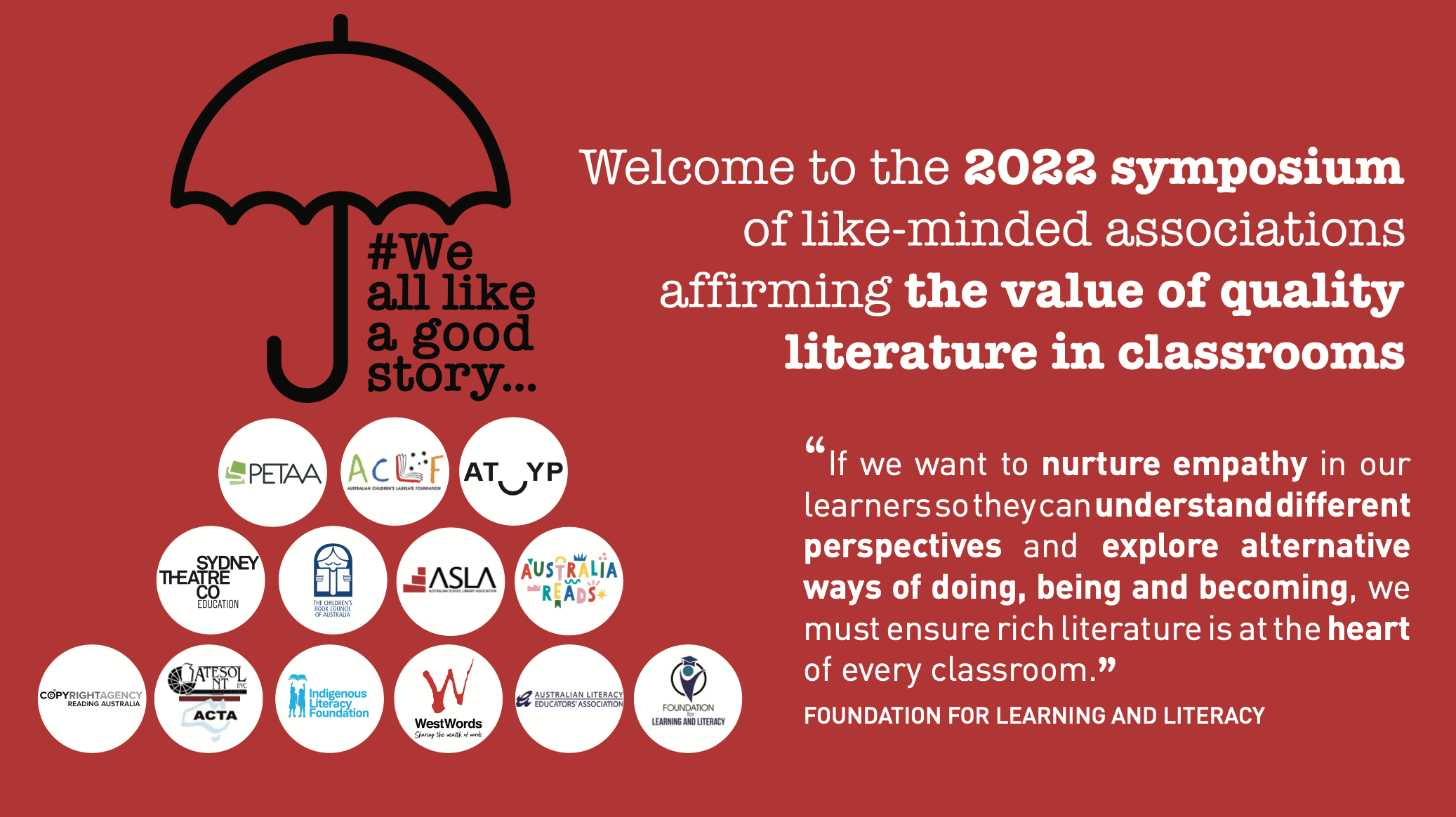PETAA Annual Conference
The theme for PETAA’s 50TH year is Looking back- moving forward and this conference will focus on supporting students to develop strong communication and literacy foundations – from first speech, learning language through play and experimentation, to the skills needed in learning to read, then what is required when students read to learn.
There is a terrific line-up of speakers.
NSW teachers: who attend in person or live stream the event: 12 hours NESA accreditation. Viewing recordings after the event is not NESA accredited PD, however can count as Elective PD.
ACT teachers: The PETAA 2022 Leading with Literacy Conference, From babble to Batavia and beyond: navigating the language and literacy landscape is TQI accredited for 10 hours of professional learning.
See the website for full details:
Literature in the classroom: from the experts – free and online
Under the ‘umbrella’ of us all liking a good story, experts from a variety of organisations have come together to share their knowledge to affirm ‘the value of quality literature in classrooms’.
This resource informs our own learning, and is a starting point for talking with colleagues about getting our practice into the best shape.
You can still register to view these at the Foundation’s home page: https://foundationforlearningandliteracy.info/symp-home/
Seven videos are available now.
This one is a gem, perfect for getting everybody into reading
The last one will be presented on 16 November 2022. Full details and the rest of the program are here.
NSW English 3-6
The importance of subtraction in problem-solving.
‘Brilliant problem-solving strategy’ is the description of a way of getting through problems, and which may be easily adapted to the classroom.
It’s about keeping things simple by taking away what is not necessary.
Our classrooms are full of busy activities, busy walls, busy processes, and unrelenting demands. There is never enough time to do all the things we want to do, that we would love to do, and we know would ensure our students learn and grow. How can we show that we value the teaching and learning we know works?
Things like students needing to see and hear text being read, as frequently as possible.
A principal I have referred to many times made one of ‘those’ requests, regarding the literacy practice in classrooms. Teachers were asked to read at least 6 items of text to students every day.
‘No time’ was the response.
So teachers were asked to look at timetables, at the busy activities and busy processes, and busy walls, and work out what time-using items could be removed. It’s a sort of Marie Kondo for schools – ‘if it’s not assisting students in their literacy, then it doesn’t belong in the classroom’.
A number of things went, providing the extra time required, included morning assemblies.
If we really are serious about improving literacy learning outcomes for our students, we need to look critically at our practice and be prepared to be brave in every aspect of our work.
World Teachers’ Day 28 October 2022
– a heads up.
Read on!







